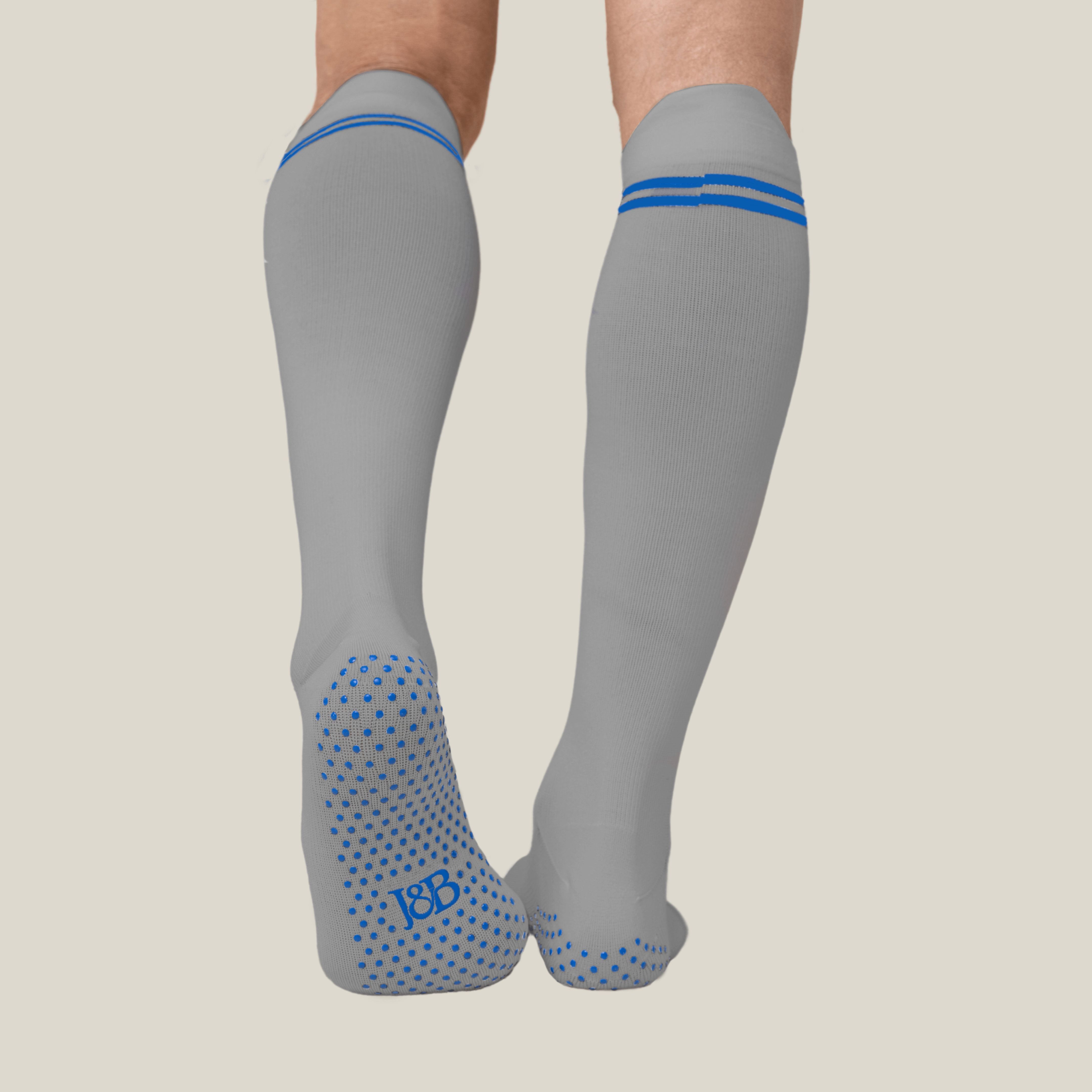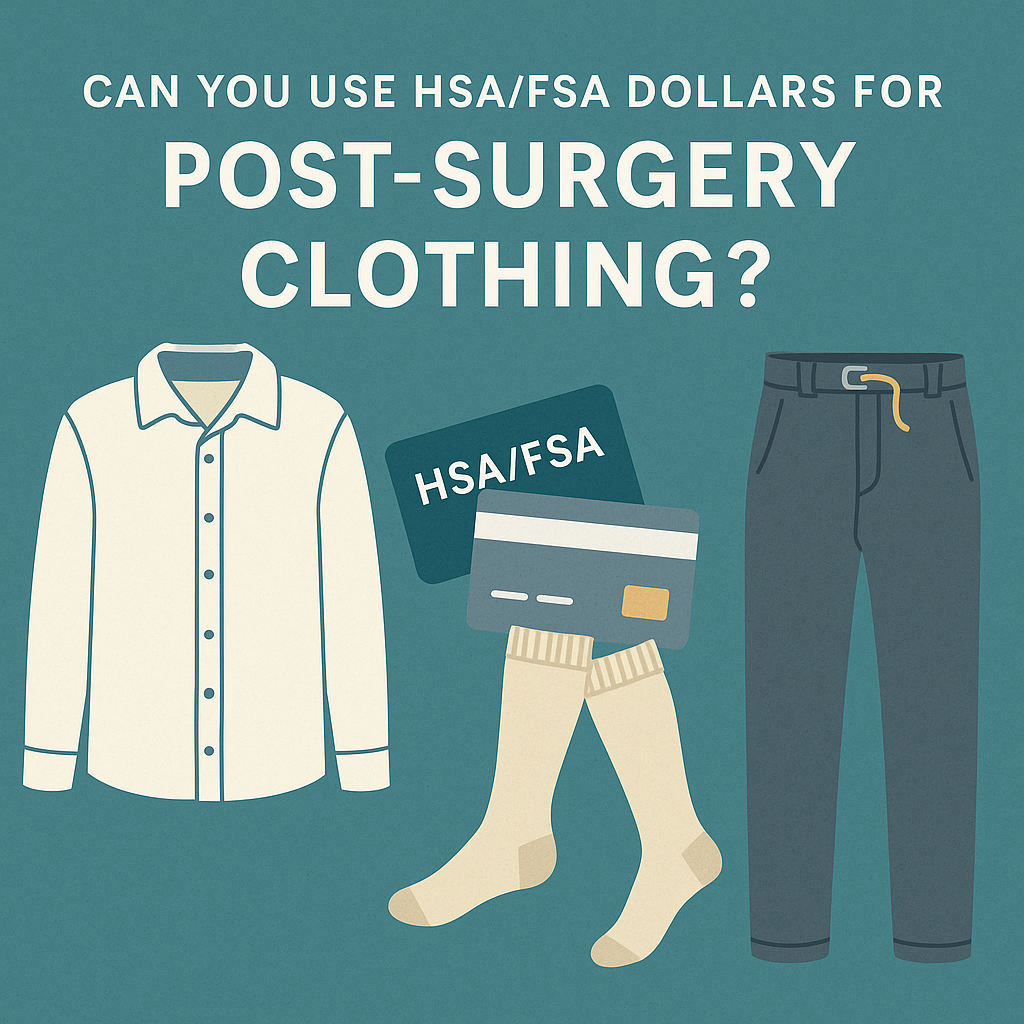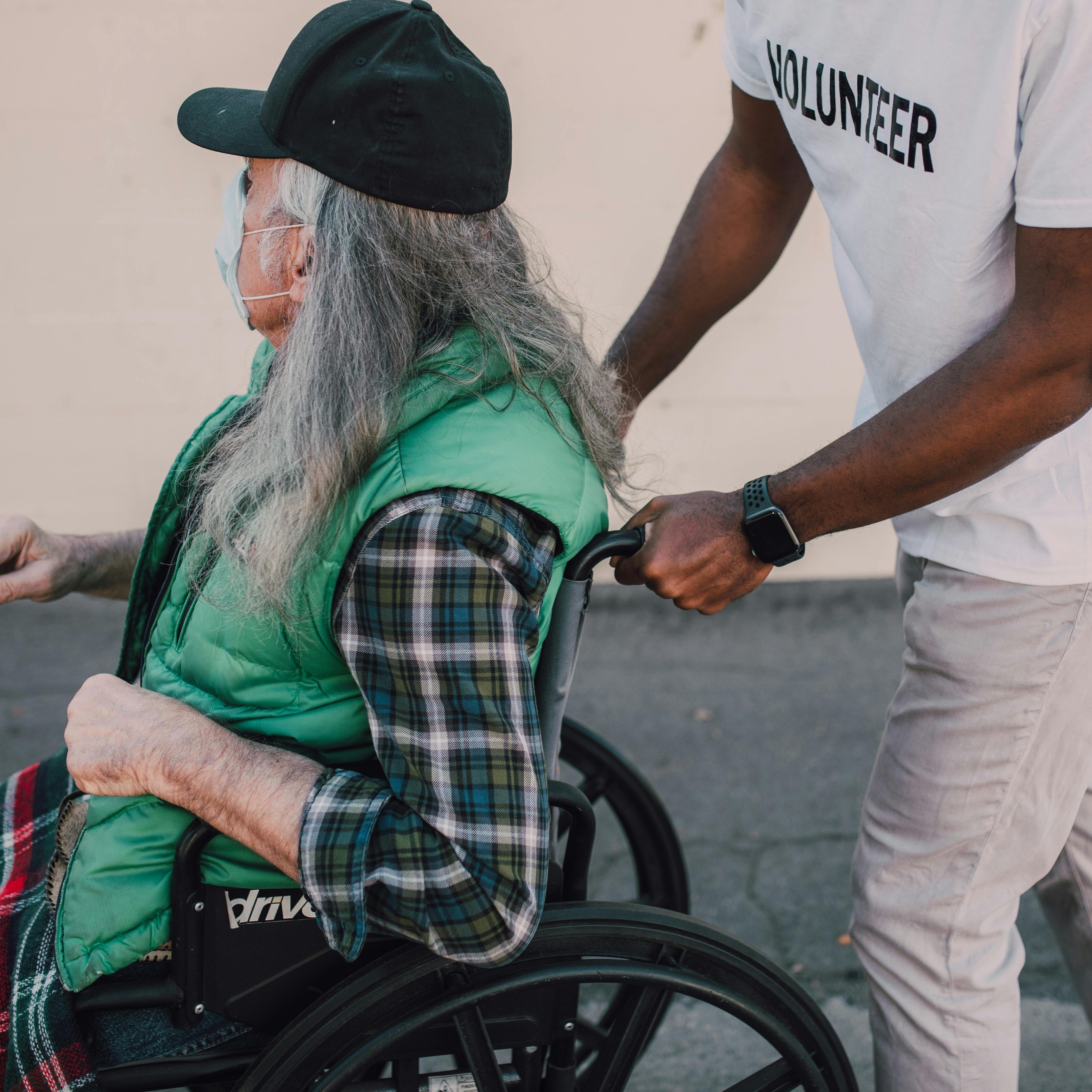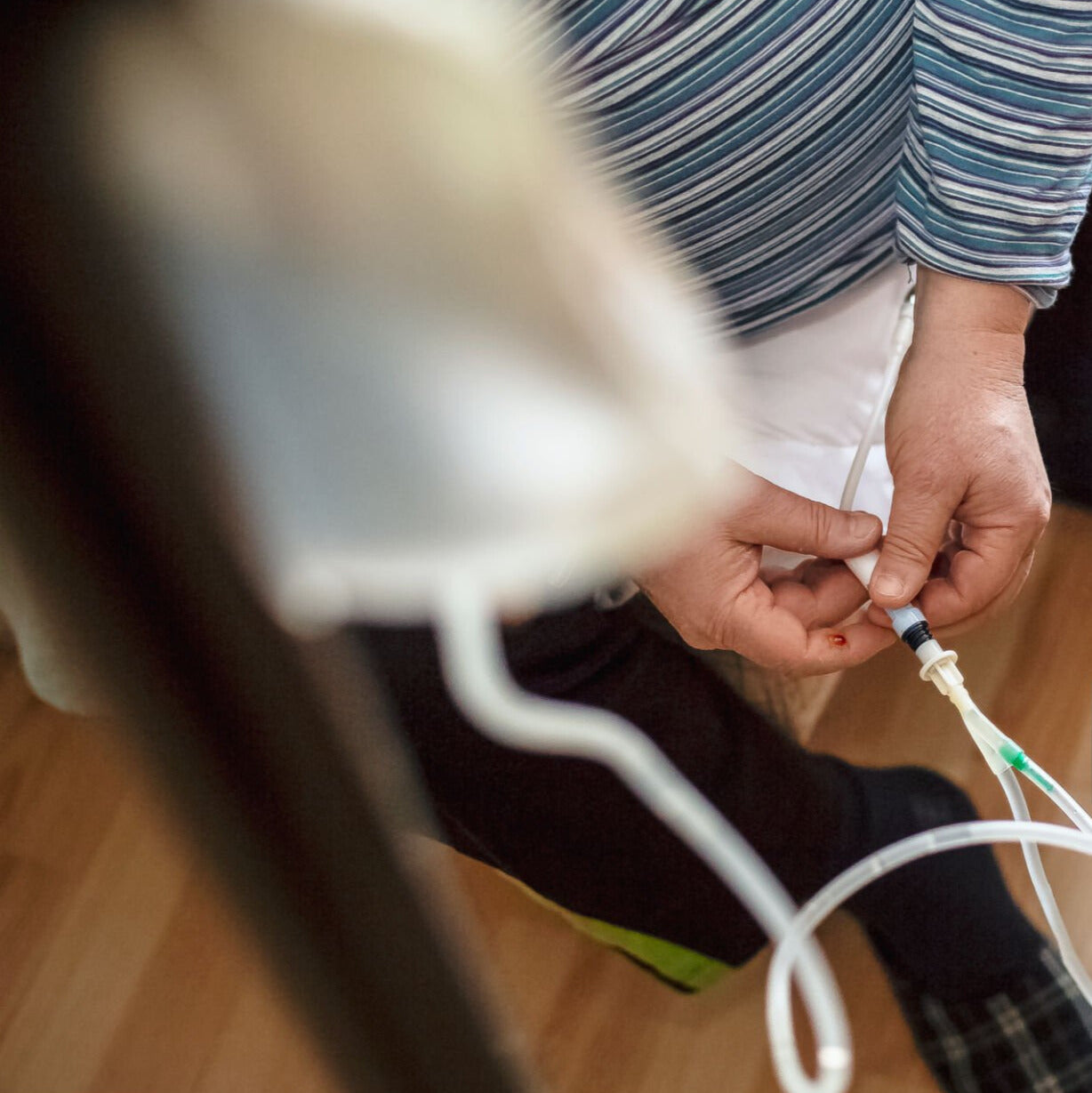Related Articles

How to Help Someone with a Disability: Practical Tips for Support

How to Choose Compression Socks: A Simple Guide to Selecting the Right Fit

Different Types Of Socks: A Complete Guide

What Are Gripper Socks & How To Use Them

What Is Kickstarter — and Why We’re Launching HoodEase There First

Meet HoodEase: The Magnetic Zipper Hoodie That Practically Zips Itself

Compression Socks for Seniors: Support, Circulation, and Comfort

The Best Gripper Socks for Seniors: Comfort, Safety, and Style

The Ultimate Guide to Easy-On Socks for Seniors

Joe & Bella Named Finalist at CoCreate 2025 | Award-Winning Adaptive Clothing Brand Impresses Shark Tank Judges

Use Your HSA or FSA Before It Expires: Smart Shopping Guide

Can You Use HSA/FSA Dollars for Post-Surgery Clothing?

Are Compression Socks FSA Eligible? Here’s What You Need to Know

What Can You Buy with HSA and FSA Funds? A Complete Guide

15 Get Well Soon Gift Ideas: From Adaptive Clothes to Fun Hospital Games

10 Helpful and Heartwarming Gifts for Breast Cancer Patients

15 Gift Ideas For MS Patients: An Essential Gift-Giving Guide

Scoliosis Brace Under Clothes: How To Dress And Clothing Options

12 Useful and Stylish Gifts for Parkinson’s Patients

11 Activities for Seniors with Limited Mobility That Keep Them Happy and Active

Five Gift Ideas For Someone With ALS

How To Assist the Elderly With Mobility Issues: An Essential Caregiving Guide

The Great Gift Boomerang

Independent Senior Living: What It Is And How Adaptive Clothing Helps

Fashion for Men Over 50: A Guide to Modern Adaptive Style

10 Gifts For Dads In Wheelchairs That He Will Love

Clothing Styles for Women Over 50: A Guide to Adaptive Fashion

Joe & Bella Partners With Charter Senior Living To Showcase Adaptive Fashion And Support Alzheimer's Awareness

How To Wear A Button-Down Shirt: An Essential Clothing Guide

Joe & Bella + Charter Senior Living Fashion Show for Alzheimer's Association

Breaking: Fashion Industry Discovers People Want Comfortable Clothes

How To Wear A Catheter Comfortably: Dressing Tips and Tricks

True Tales of Transformation: Our Customers' Journeys

10 Must-Have Helpful Gifts for Bedridden Adults and Seniors

What Is Adaptive Clothing?

Behind the Seams: How Your Joe & Bella Favorites Come to Life

Behind the Seams: How Your Joe & Bella Favorites Come to Life

Behind the Seams: How Your Joe & Bella Favorites Come to Life

FINAL DAY: 20% Off The Signature Collection

Introducing The Signature Collection | Limited 20% Savings

Finding Dignity in Dressing: Your Stories

Tuesday Tips, Trends & Tales: Caregiver Q&A With Nurse Taylor

"The Magnets Made Him Giggle Again" - Real Stories from Joe & Bella Customers

Understanding Age-Related Dressing Challenges: The Physical and Cognitive Changes That Affect Dressing

Providing Home Care for People with Disabilities: A Comprehensive Guide

10 Fun Things To Do With Grandparents

10 Helpful Things That Help Seniors At Home

Why Compression Socks For Flying Are A Must-Have

How To Make Life Easier With A Broken Arm: 9 Important Products

Tuesday Trends: Where Fashion & Memory Care Surprisingly Intersect
Share
While Americans wait for another round of financial relief from the federal government, one group might be in line for an unexpected payment. Up to 60,000 American Holocaust survivors could be the recipients of payments from the German government following an agreement with the New York-based Conference on Jewish Material Claims. The agreement, according to Newsweek’s Jacob Jarvis, is worth $663 million and will allow 240,000 survivors globally (including 58,000-60,000 Americans) to claim $2,800 over the next two years.
According to Jarvis, this agreement came about in response to the financial crisis, which is wreaking havoc for so many adult adults, in tandem with the pandemic.
Gideon Taylor, the President of the Claims Conference, said the payments "will help our efforts to ensure dignity and stability in survivors' final years."
"We must meet the challenges of the increasing needs of survivors as they age, coupled with the new and urgent necessities caused by the global pandemic. It will always remain our moral imperative to keep fighting for every survivor."
“This news is near and dear to our hearts,” said Joe & Bella CEO Jimmy Zollo. “Our brand, which is all about making life a bit easier for older adults and their caregivers, was named after two Holocaust survivors who have played a special role in our lives.” Joe & Bella is a new e-commerce site that serves older adults and their family caregivers by providing a single destination to shop for products they need easily and simply.
Importance of Support Amid the Pandemic
Stuart E. Eizenstat, Claims Conference Special Negotiator, spoke of the importance of such support amid the coronavirus crisis: "In the face of a devastating global pandemic, it was vital to secure larger increases for survivors while also seeking immediate funds to help them through these extremely challenging times," he said.
Older adults have been disproportionately impacted by the pandemic. According to recent analysis by Kaiser Family Foundation, 80% of all US Covid deaths were of adults 65 and older. That age demographic only accounts for 16% of the US population.
Financial Consequences on Seniors During the Pandemic
The National Council on Aging (NCOA) published a brief in April that warned of the dire financial consequences that would impact seniors, predicting between 1.4 and 2.1 million will be pushed into poverty because of the pandemic.
“Recent history shows us that older adults suffer significant declines in net wealth during large and unanticipated economic downturns,” said Dr. Susan Silberman, NCOA Senior Director, Research & Evaluation. “A case in point is the Great Recession that began with the collapse of financial markets in 2008. A common trend seen across those aged 60 and older, regardless of age group or retirement status, was a decrease in total net wealth and taking on greater debt during times of recession.”
Since NCOA’s prediction, the poverty rate for those 65 and older has risen from 15.5% to 16%. In April, according to the Bureau of Labor Statistics, unemployment for those 55 and older peaked at 13.6%, higher than nearly all other age groups, reflecting that those still in the workforce have faced a significant challenge in retaining stable employment.
Related Articles

How to Help Someone with a Disability: Practical Tips for Support

How to Choose Compression Socks: A Simple Guide to Selecting the Right Fit

Different Types Of Socks: A Complete Guide

What Are Gripper Socks & How To Use Them

What Is Kickstarter — and Why We’re Launching HoodEase There First

Meet HoodEase: The Magnetic Zipper Hoodie That Practically Zips Itself

Compression Socks for Seniors: Support, Circulation, and Comfort

The Best Gripper Socks for Seniors: Comfort, Safety, and Style

The Ultimate Guide to Easy-On Socks for Seniors

Joe & Bella Named Finalist at CoCreate 2025 | Award-Winning Adaptive Clothing Brand Impresses Shark Tank Judges

Use Your HSA or FSA Before It Expires: Smart Shopping Guide

Can You Use HSA/FSA Dollars for Post-Surgery Clothing?

Are Compression Socks FSA Eligible? Here’s What You Need to Know

What Can You Buy with HSA and FSA Funds? A Complete Guide

15 Get Well Soon Gift Ideas: From Adaptive Clothes to Fun Hospital Games

10 Helpful and Heartwarming Gifts for Breast Cancer Patients

15 Gift Ideas For MS Patients: An Essential Gift-Giving Guide

Scoliosis Brace Under Clothes: How To Dress And Clothing Options

12 Useful and Stylish Gifts for Parkinson’s Patients

11 Activities for Seniors with Limited Mobility That Keep Them Happy and Active

Five Gift Ideas For Someone With ALS

How To Assist the Elderly With Mobility Issues: An Essential Caregiving Guide

The Great Gift Boomerang

Independent Senior Living: What It Is And How Adaptive Clothing Helps

Fashion for Men Over 50: A Guide to Modern Adaptive Style

10 Gifts For Dads In Wheelchairs That He Will Love

Clothing Styles for Women Over 50: A Guide to Adaptive Fashion

Joe & Bella Partners With Charter Senior Living To Showcase Adaptive Fashion And Support Alzheimer's Awareness

How To Wear A Button-Down Shirt: An Essential Clothing Guide

Joe & Bella + Charter Senior Living Fashion Show for Alzheimer's Association

Breaking: Fashion Industry Discovers People Want Comfortable Clothes

How To Wear A Catheter Comfortably: Dressing Tips and Tricks

True Tales of Transformation: Our Customers' Journeys

10 Must-Have Helpful Gifts for Bedridden Adults and Seniors

What Is Adaptive Clothing?

Behind the Seams: How Your Joe & Bella Favorites Come to Life

Behind the Seams: How Your Joe & Bella Favorites Come to Life

Behind the Seams: How Your Joe & Bella Favorites Come to Life

FINAL DAY: 20% Off The Signature Collection

Introducing The Signature Collection | Limited 20% Savings

Finding Dignity in Dressing: Your Stories

Tuesday Tips, Trends & Tales: Caregiver Q&A With Nurse Taylor

"The Magnets Made Him Giggle Again" - Real Stories from Joe & Bella Customers

Understanding Age-Related Dressing Challenges: The Physical and Cognitive Changes That Affect Dressing

Providing Home Care for People with Disabilities: A Comprehensive Guide

10 Fun Things To Do With Grandparents

10 Helpful Things That Help Seniors At Home

Why Compression Socks For Flying Are A Must-Have

How To Make Life Easier With A Broken Arm: 9 Important Products

Tuesday Trends: Where Fashion & Memory Care Surprisingly Intersect







